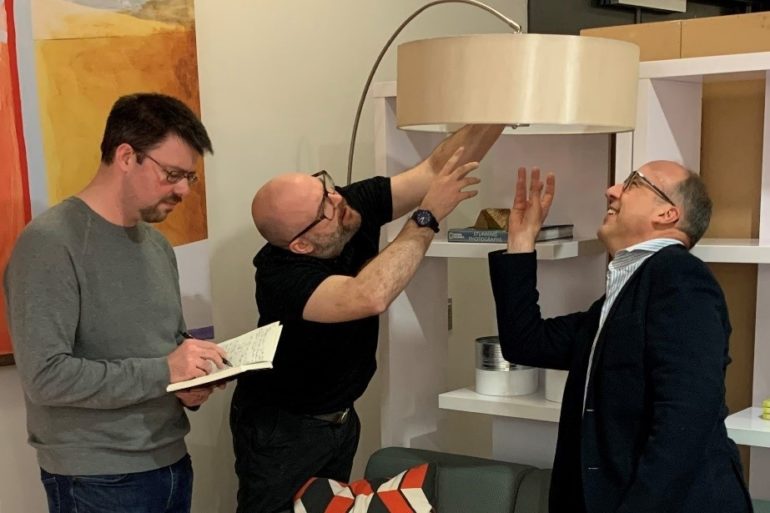From working-at-home practices to an awareness of how to wash our hands, from the availability and funding of health care to whether life goes on in the absence of professional sports, from climate change mitigation to how many Zoom calls we can fit into one day, many things have the potential to look very different when we finally recover from the coronavirus pandemic.
Are the old ways really the best?
Whether we embrace this catalyst for change or revert to the way things were before depends a lot on how much we are affected by a cognitive bias known as the myside bias (or confirmation bias[1]).
The myside bias: the tendency to search more strongly for evidence that supports beliefs we already hold or discredits opposing views.
This bias makes people reluctant to change their minds and slow to adopt new methods.[2]Examples are common, with evidence of a reduction in people’s logical reasoning when considering entrenched beliefs such as abortion, climate change, vaccination, or the deepest allegiance of all, football (soccer): should Wayne Rooney have been sent off during the 2006 World Cup match between England and Portugal? Your answer probably depends on whether you support England or the popular Scottish allegiance, Anyone But England.[3]
Why investigate if we already know the answer?
The myside bias brings into question how effectively we are able to apply the scientific method. I recently read a paper claiming to show that subway lines in New York had been responsible for spreading the coronavirus. My existing views on the cleanliness of public transport meant this conclusion was easy for me to embrace. However, the evidence in this paper is not convincing at all and, in my opinion, would seem ridiculous if it was presented in support of a hypothesis I did not already believe.
As we struggle to understand the ramifications of the pandemic, it is important that we remain objective. I recently wrote a piece discussing how socioeconomic groups may be affected differently by the coronavirus (which is supported by ONS data released today). Later this year we will embark on some research using the Club Vita data sets to analyze this concept, but we must not let our expectations bias our results.
The first cut is the deepest
This bias also results in an over-reliance on first impressions, which is best explained using Danny Kahneman’s framework from “Thinking Fast, Thinking Slow”: when confronted with something new, we first make a quick comparison to our existing views to form an initial assessment. After these first impressions have been formed, we then engage in more considered thought. Fuelled by the myside bias we search for evidence to support our initial belief, doubling down on our first impression.
New ideas often won’t fit perfectly into our existing belief system. In this setting, the framing of the new idea is crucial. If our first encounter is framed positively within our existing beliefs, we search for justification for the idea as whole. If it is framed negatively, we become much harder to convince.
This was the central premise of the 1998 timeless classic “You’ve Got Mail”: when Meg Ryan meets Tom Hanks online, she thinks he is the book-loving romantic she has been dreaming of, leading her to search for any reason as to why he is Mr Right. However, when she meets him in person (not knowing she has already met him online), she knows him as the over-privileged owner of a large corporation threatening her bookshop. She then searches for every reason as to why he is Mr Wrong. These contrasting first impressions may actually mean that Meg ends up forming a balanced view of Tom – I wonder if it is possible to apply these methods to actuarial valuation assumptions.
I agree with Nick… as long as Nick agrees with me
The myside bias is particularly prevalent in the political arena. There is evidence to show that both those on the left and the right are liable to dig in with their preconceived ideas, avoiding exposure to arguments supporting opposing views.
Never has this been more on show than during last year’s US impeachment inquiry, where the opposite sides unwaveringly backed quite radically different positions. Regardless of what side of the debate you sit, the fact that neither side seemed to take any notice of the opposing arguments is not a good sign for the idea that reasoned debate will bring about a good decision.
How many actuaries?
In the actuarial profession, as I am sure with other professions, received wisdom is very important. We spend years passing exams covering the best practice of the day. The starting point for a piece of work is to understand the method and thought process that was followed last time. Even our statistical models rely on past data to inform projections into the future.
This has become a running joke in the profession as demonstrated by:

Q: How many actuaries does it take to change a lightbulb?
A: I'm not sure, how many did it take last year?
Just because the past is a good starting point, we must be careful not to become over-reliant on the way things have always been – especially in the current climate. As the great computer scientist, Grace Hopper, said:
“The most dangerous phrase a … manager can use is ‘we’ve always done it that way’”
Sympathy for the devil
The most effective tonic I have encountered for the myside bias is simply to try to put ourselves in the shoes of someone with the opposite opinion. What questions would we ask? What evidence would we accept? This practice sometimes feels consigned to high school debating clubs, but the techniques can be readily applied to the modern working environment.
I used to sit on the governance committee for my company’s own pension plan. At each meeting, we assigned someone to play the role of “devil’s advocate”. This person had the responsibility to challenge any accepted wisdom and present possible counter arguments. With someone playing this role it was easier to flush out bias, resulting in better decisions formed on more solid foundations. I found it great fun to play the devil’s advocate and it turned out I was particularly skilled at it. I like to think this was because I have a balanced and inquiring mind rather than just because I am argumentative or contrary.
What do you think?
Whether it’s for business or pleasure, challenging our existing beliefs will result in better outcomes. Will we be able to rebuild in a better image following the upheaval caused by the coronavirus pandemic, or will we revert to the way things were before? Perhaps we could do with a few more people playing devil’s advocate.
[1]Psychologists prefer to use the term myside bias reserving the term confirmation bias for a tendency to search for evidence that confirms any hypothesis we are faced with whether it aligns with our prior beliefs or not.
[2]This is suggested as the reason younger doctors out perform their more experienced counterparts.
[3]The effect even seems to be felt more strongly by highly trained or intelligent individuals, Some studies even show a greater bias amongst highly trained or intelligent individuals, suggesting that smart people seem to use their intelligence selectively to argue in favour of views they already hold. For more on this I highly recommend David Robson’s book, The Intelligence Trap.




